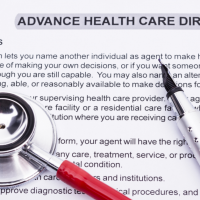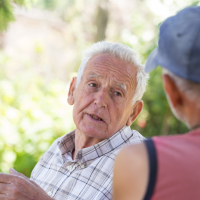Advance Directives: Not Just For End-Stage

It can be uncomfortable to even think about worse-case scenarios, let alone talk about them with those closest to you. As uncomfortable as we may feel, life’s ups and downs will occur regardless of our feelings. In order to make sure that your wishes are being met, regardless of your ability to communicate, a legal Advance Directive is the best route — and not just for end-stage patients.
What is an Advance Directive?
Most of us are familiar with a will — a legal document declaring what will be done with your earthly possessions in the event of your demise. In that similar vein, an Advance Directive is a legal document that spells out what kind of medical treatment you’d prefer to receive or not receive in the event that you are incapacitated and physically unable to make such requests.
Power of Attorney vs Advance Directive
One way we like to deflect planning for the worst is by placing this responsibility on whoever has our Power of Attorney. Someone you have given Power of Attorney is typically someone close to you whom you’ve selected to make major legal decisions on your behalf. While issuing someone to be your Power of Attorney is helpful in many situations, there can be complications with placing all of the decisions on their shoulders in the event of an unfortunate event. While you may be in a lucid and calm state right now, in the event that you unable to physically communicate, your Power of Attorney may make hasty or irrational decisions using their emotions in place of what you would have wanted. Another downside to placing that level of responsibility on your Power of Attorney also means you’re saddling them with the grief and doubt of trying to determine what care you would have wanted. Wondering if they made the right decision may be an immense burden that they carry the rest of their lives.
Advance Directives For Everyone
Most able-bodied individuals do not have an Advance Directive. A lack of an Advance Directive can be a major issue in the unfortunate event that they are incapacitated and important legal and medical decisions need to be made. Even if someone has Power of Attorney to make the necessary decisions, their choices, no matter how well-intentioned, can cause strife within friends and family members who do not agree with their decisions. If someone has an Advance Directive, there’s no one to be upset with because the subject’s wishes are the ones being carried out. Because unfortunate incidents happen every day ranging from car wrecks to brain aneurysms to getting hit with NASA space debris, planning for what kind of treatment to receive or not receive can help lift the burden of the mystery of knowing what kind of treatment you would have wanted.
Each state’s laws for Advance Directives differ, but here is a copy of a blank Oklahoma Advance Directive.



